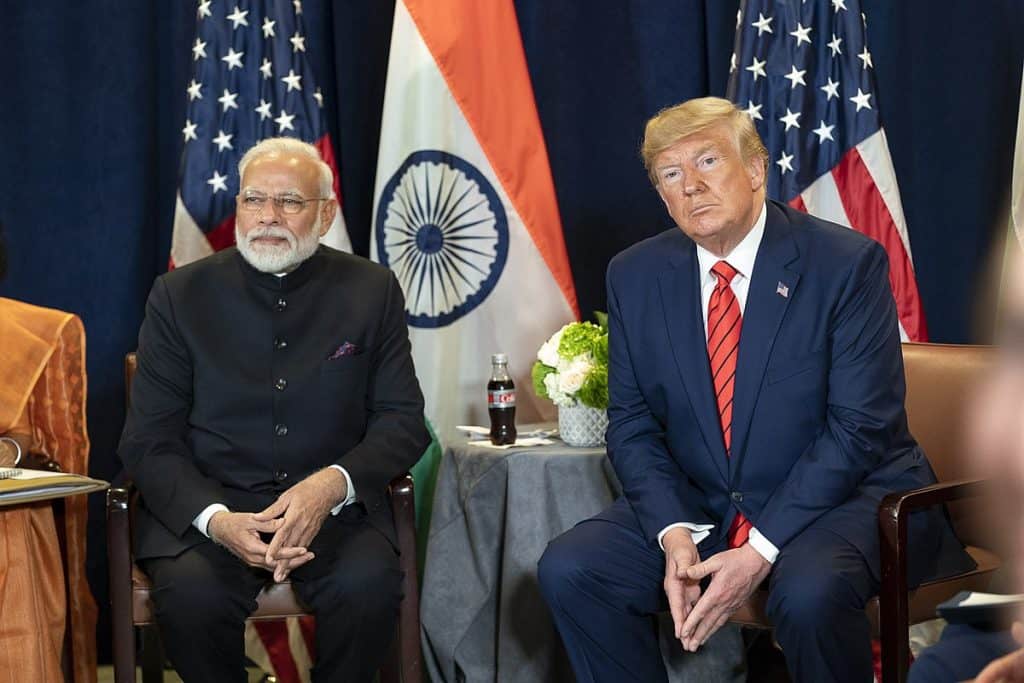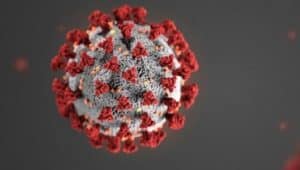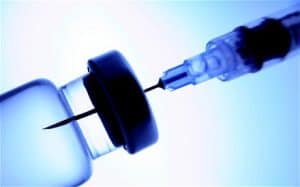
Donald Trump talks of “retaliation” if India does not export hydroxychloroquine to the US
pharmafile | April 7, 2020 | News story | Manufacturing and Production | American coronavirus, COVID-19, Donald Trump, coronavirus
United States President Donald Trump has suggested that the US may retaliate if India did not export the anti-malaria drug hydroxychloroquine, which is being used to treat COVID-19.
Trump spoke to Prime Minister of India Narendra Modi to convince him to lift a ban on the export of the drug, hours after he enacted the policy.
Trump told the press that: “I would be surprised if that were his decision. He’d have to tell me that. I spoke to him Sunday morning, called him, and I said we’d appreciate your allowing our supply to come out.
“If he doesn’t allow it to come out, that would be okay, but of course there may be retaliation. Why wouldn’t there be. I would be surprised if he would, you know, because India does very well with the United States.”
India’s to decision to end exports of hydroxychloroquine come as the country tries to shore up their own stockpile. The Indian Council of Medical Research has recommended the anti-malarial drug for those involved in the care of confirmed cases of COVID-19.
India has since tried to downplay the possible tensions with the US caused by its decision. Anurag Srivastava, a spokesperson for the Indian Ministry of Affairs, said: “We have seen some attempts by sections of the media to create unnecessary controversy over the issue of COVID-19 related drugs and pharmaceuticals. Like any responsible government, our first obligation is to ensure that there are adequate stocks of medicines for the requirement of our own people. In order to ensure this, some temporary steps were taken to restrict exports of a number of pharmaceutical products.”
“We will also be supplying these essential drugs to some nations who have been particularly badly affected by the pandemic. We would therefore discourage any speculation in this regard or any attempts to politicise the matter.”
The US already has a huge stockpile of hydroxychloroquine as the FDA has allowed this drug to be donated to the Strategic National Stockpile. Novartis’s Sandoz has donated 30 million doses to the stockpile while Bayer has donated 1 million doses of chloroquine. Trump says the US government has stockpiled 29 million pills of hydroxchlorquine.
Trump has constantly told people to take the drug as both a prevention and treatment for coronavirus, saying that people “have nothing to lose” from treating themselves with the anti-malaria medication. However, it is not safe for everyone to take, and it can cause severe side effects such as impaired vision, hearing loss, paranoia and cardiac arrhythmias which could be fatal for people taking anti-depressants or patients with heart problems.
Trump’s rhetoric has also caused a shortage of the drug traditionally used in patients with malaria or lupus. The evidence this drug works as a coronavirus treatment is not concrete. Part of the evidence is from Professor Didier Raoult and his study of 36 people in France. Raoult said he cured 100% of the patients but left out that six dropped out after the first six days and they died, were transferred to the ICU or couldn’t tolerate the drug.
But a study out of Wuhan is getting more positive attention, where researchers tested the drug in 62 people with mild to moderate COVID-19 in a controlled studied. In patients who received the drug the time to clinical recovery was significantly shorter.
Conor Kavanagh
Related Content

COVID-19 vaccine eligibility creates challenges for UK pharmacies
Pharmacists across England have reported widespread confusion among patients attempting to book COVID-19 vaccination appointments …

Mental health medicine use in England reaches record high, NHSBSA report reveals
According to new data published by the NHS Business Services Authority (NHSBSA), mental health prescriptions …

FDA approves Moderna’s Spikevax for children at increased risk of COVID-19
Moderna has been granted US Food and Drug Administration (FDA) approval for its COVID-19 vaccine, …






